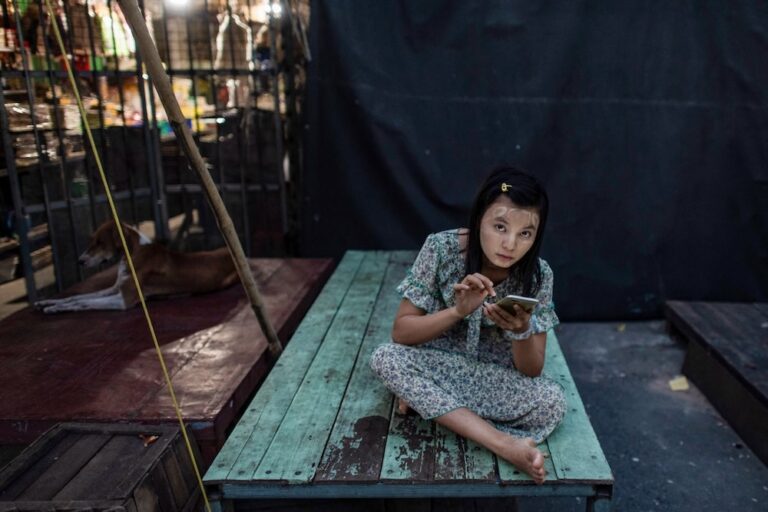The UEC issued a notice granting "legal" parties the right to campaign on state-run radio and television, with 15 minutes allotted for each campaign speech by their chairmen or secretaries.
(Mizzima/IFEX) – The Burmese government’s Union Election Commission (UEC) issued a notice on 14 September 2010 granting “legal” parties the right to campaign on state-run radio and television, with 15 minutes allotted for each campaign speech by their chairmen or secretaries until 25 October 2010. The parties, however, were told they needed to submit a draft copy of their speeches to the authorities for permission. The maximum limit of the draft speech is seven pages of A4 paper, the notice says.
However, many other restrictions were included in the notice with vaguely-worded offenses such as “committing disaffection to the state and government”, of the kind that have frequently been used to frame opposition members and led to their imprisonment. Besides these restrictions, the draft copy of their speeches must be approved by the state censor board.
The restrictions on campaign speeches on state-run media:
1. Must not give any talks that can harm non-disintegration of the Union, non-disintegration of national solidarity and perpetuation of sovereignty.
2. Must not give any talks that can harm security, the rule of law and community peace.
3. Must not disobey the Constitution (2008) of the Union of Myanmar (Burma) and existing laws.
4. Must not stimulate sedition or give any talks that can tarnish the image of the state.
5. Must not give any talks that can lead to the collapse of the Tatmadaw (armed forces) or tarnish the image of the Tatmadaw.
6. Must not give any talks or undertake organising measures that can lead to conflicts or harm dignity or moral conduct in connection with racism or religion or affairs of an individual or community.
7. Must not abuse religion for political ends.
8. Must not give any talks that can harm peaceful pursuit of education.
9. Must not give any talks that can discourage service personnel from performing their duties or to abet them to stage protests against the government.
The government dissolved 10 political parties including the main opposition National League for Democracy and allowed the remaining 37 parties the right to campaign on state-run radio and television.


